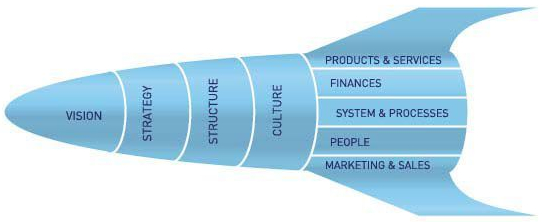This may seem a strange subject so close to relationships, but they're closely related. In fact, in too many cases, people can spend more time at work than at home. Everyone's heard of work-life balance, but some have little idea how different things could be. Of course, there are times that work is "crazy" - but if there's no balance, the toll can be dreadful, even tearing apart families.
Good relationships make for a better workplace than poor relationships. This might be obvious in any workplace, but perhaps surprisingly, this especially applies where it's your own establishment.
There are many reasons for going into business. It may be that you can see a better way of running your workplace. Or it may be that you have come up with an idea you think people will pay for. Or perhaps you've come into some money and are considering what to do with it. Whatever the reason, it can be very damaging if you don't do the right things. But what are the "right" things? That's about as easy as asking what the right things are to make a relationship succeed.
The best book on this is now a classic: The E-Myth Revisited by Michael Gerber. Possibly the single best thing about this book is its style and language. Rather than read like a textbook, it is the story of a young businesswoman who finds herself swamped by the needs of her business. If you've ever tried starting a business, you'll understand as she watches her initial zeal drown in the daily hustle and bustle.
Probably the biggest lesson is that any business needs three different "people". The technician is the "expert" in what the business does. That's the easy bit, and where most people start. However, the other two people are equally important, but whereas most people can do the technician PLUS one of the other two, it's tough to do all three. That's because the entrepreneur and the manager are opposite types. The entrepreneur is internally motivated, whereas the manager is externally motivated.
Lessons on motivations are more than we can deal with here, but right from the start, we have a fundamental problem limiting any business's potential. Of course, you might be in the minority that starts with more than one person, but even then, we hope these are NOT the same type, which many of your friends will be.
The easiest way of getting around this is that an entrepreneur (and technician and administrator) can buy in managerial skills. Often this starts with an accountant who may also help with banking, and so on. Sadly, the reverse is more common - a manager (and technician) looks for an entrepreneur, but this is much harder to find (and evaluate and afford).
Having the right people around is a biggie - but there's more. In particular, having a product that is appealing enough so that enough people will give you enough money that you can live on. It is unhelpful for you to spend time and effort establishing a business and then find there's not enough money to pay for the business AND provide an adequate income for you. This is a big area, and of course, you cannot expect adequate income from day one, so you need to budget for that.
There's also the external environment to consider. Usually, there's not a lot you can do about that, but you do need to keep an eye on that. There are not many buggy whip or camera filmmakers around today.
Finally, you need to manage your business with the long-term view in mind. The best illustration I have found is a rocket model. It has a nose containing the more directorial or directional components, and the fins containing the day-to-day nuts and bolts of the business. Particularly with a sole trader without employees, you will still be spread a bit thin. But if you keep looking at your work ON the business as your first priority, things are far more likely to work out for you.

